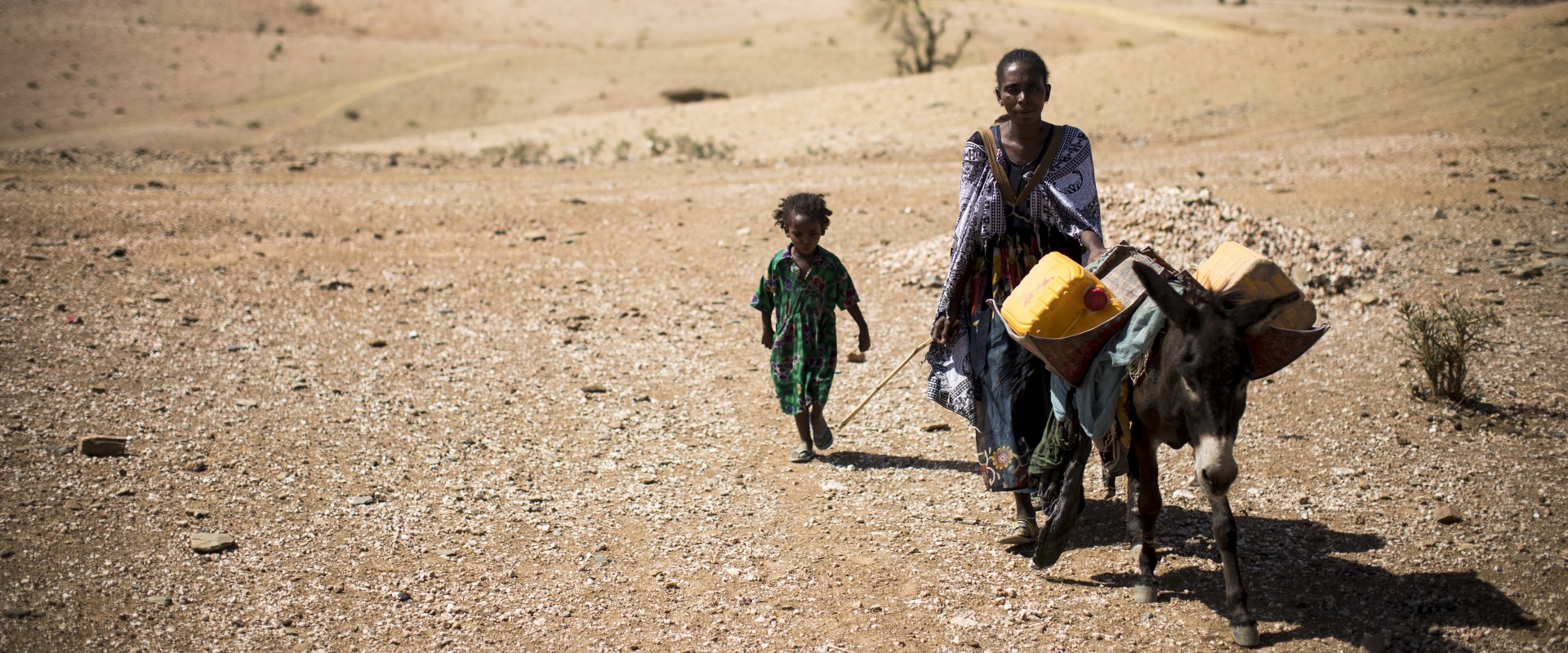
GIVE THIS RAMADAN

Addis Ababa, Ethiopia—Action Against Hunger, a world leader in finding sustainable solutions to world malnutrition and ending global hunger, will have a key presence throughout this year’s African Union conference, which culminates in the Assembly of Heads of State and Government on Feb. 18.
The Assembly takes place at a time when 46 million people across the Horn of Africa—more than the population of California—are in urgent need of food assistance. Hundreds of thousands are on the brink of famine. In response to this crisis, NGOs are urging world leaders to make significant reforms to famine prevention efforts. The International Rescue Committee, World Vision International, and Action Against Hunger are pushing to reenergize the UN High-Level Task Force on preventing famine. Everyone must play a role in preventing famine—from local authorities to world leaders. The African Union Summit is designed to bring African leaders and change-makers together to build solidarity and inspire creative solutions to its extreme hunger crisis.
Globally, women are disproportionately impacted by hunger. They are also in unique positions to prevent deadly malnutrition and to lead sustainable solutions to climate change, hunger, and inequity in their households and communities. As a leader in promoting gender equity, Action Against Hunger was nominated to lead advocacy efforts on a high-level convening on Empowering Women in Agriculture in Africa, which emphasized the interconnected issues of conflict, climate, and hunger.
To realize Africa’s agricultural potential and system transformation, change begins with women leaders. Throughout all its initiatives and interventions, Action Against Hunger prioritizes women’s empowerment and supports women who are leading the fight against malnutrition. The organization will sign a memorandum this week with the Gender is My Agenda Campaign, a network of 55 national and international organizations dedicated to monitoring the implementation of gender equality work throughout Africa.
During the Assembly, the African Union will be launching the Africa Humanitarian Agency and will spotlight political and socio-economic issues and determine ways to advance the welfare of all African citizenry.
“Action Against Hunger stands in support of the African Union’s focus,” said Alvin Munyasia, the organization’s Advocacy and Communication Specialist for the Horn and Eastern Africa. “We’re especially concerned with building peace and security throughout Africa, advancing the global political, financial, and energy policies surrounding the food crisis, learning from the African Union’s response to COVID-19, and prioritizing ways to halt climate change’s catastrophic effects on the continent.”
Action Against Hunger calls on global partners to promote Africa’s development by supporting the African Continental Free Trade Area (AfCFTA), a main focal point of this year’s African Union Summit. By 2035, the AfCFTA aims to increase Africa’s gross income by $450 billion. Accelerating the AfCFTA is key to Africa’s transformation. Trade stimulates collaboration and fosters connections that are crucial to evolution and progress. With women and small-scale farmers at its heart, the initiative is projected to lift 30 million people out of extreme poverty and 68 million more out of moderate poverty.
“It is more urgent than ever to act now, especially when hunger is preventable and treatable,” said Albert Siminyu, Action Against Hunger’s Regional Director for the Horn and Eastern Africa. “Preventing famine should be our top priority, and it is only through collaborative action that we can ensure progress. Here at the Summit, we’re promoting inclusive, sustainable, and innovative initiatives to tackle hunger throughout the continent.”
One million people across Africa are projected to face famine conditions in the coming year. People across the Horn of Africa, already facing chronic inequality and cycles of conflict, are expected to be forced to confront a sixth failed rainy season. Climate change has spurred the region’s worst drought in 40 years, leaving mothers and children alike on the verge of death. Crops have been destroyed, livestock have perished, and people struggle each day to find enough to eat.
“It is up to us to take action, and we must take action now,” Siminyu said. “We hope this Summit will encourage people that collaboration is our only key to success.”
Join our community of supporters passionate about ending world hunger.